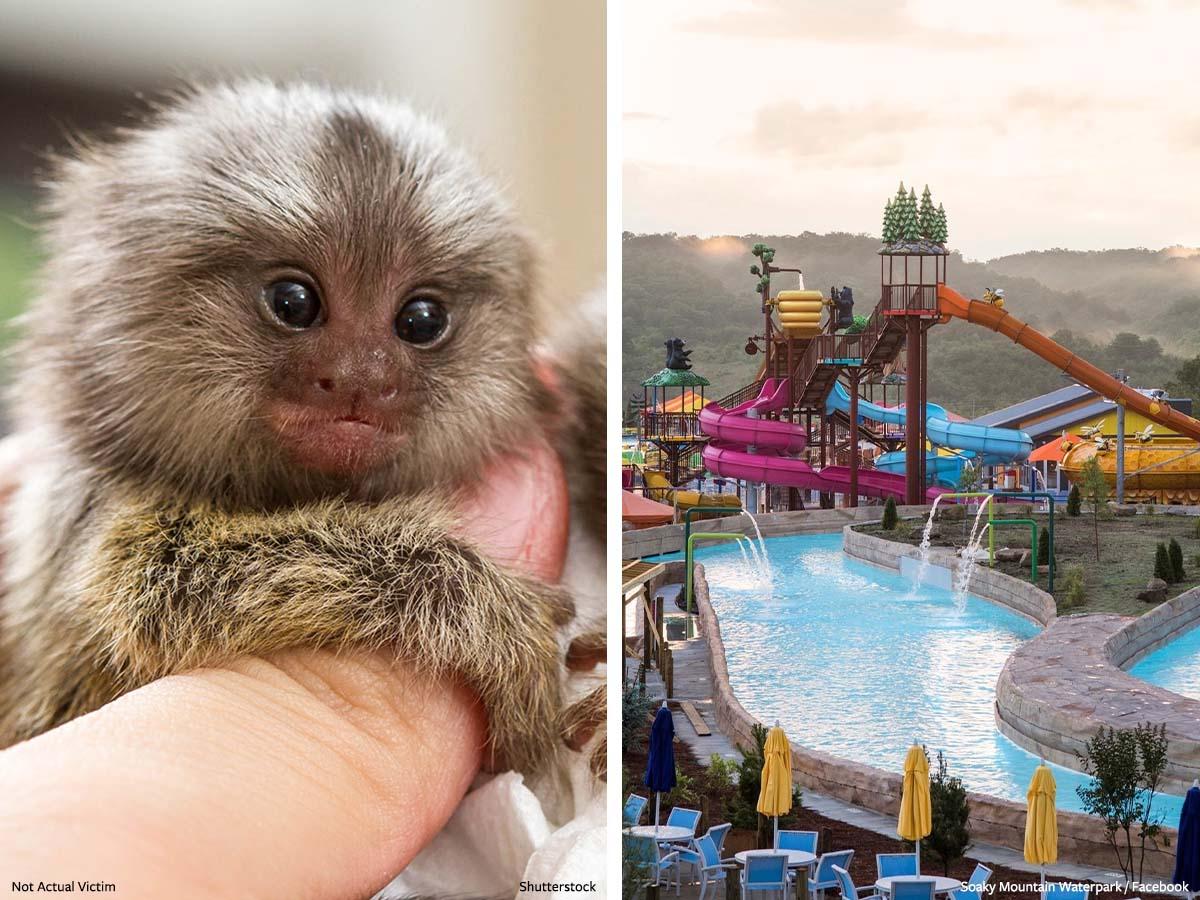UPDATE: Couple Who left Marmosets in Hot Car Take Deal
If you were among the thousands of people who joined us in calling for justice for two baby marmosets who were left in a hot cat at a waterpark in Tennessee, which resulted in the death of one, the sentencing their supposed guardians received is going to be very disappointing. Still, we won’t give up on advocating for wild animals to be left in the wild.
The tragic and senseless story began on June 23, 2021, when the Sevierville Police Department was called to the Soaky Mountain Waterpark by its management after they were alerted that two baby monkeys were in a vehicle in the parking area.
The tiny 9-week-old marmoset in the vehicle was dead. The 5-week-old was barely clinging to life and was rushed to the Appalachian Animal Hospital nearly 40 miles away and treated for severe dehydration.
At the time of the crime, the outdoor temperature was 82 degrees. It is probable that the interior of the vehicle was as high as 120 degrees, a hellish atmosphere for two innocent little lives who were given no thought.
The detectives of the Sevierville Police Department took this case so seriously that they did not wait for Nova and Paul Brettell to be indicted and proceeded with a felony aggravated animal cruelty charge for the death of the 9-week-old primate and a misdemeanor animal cruelty charge for the 5-week-old who miraculously survived.
Despite more than 12,000 In Defense of Animals supporters signing our letter to Assistant District Attorney Ron C. Newcomb seeking the conviction and maximum sentencing for the couple, on May 27, the Brettells were given a plea deal. They were fined only $500 and were given 11 months and 29 days of probation, with 35% of it supervised.
The good news is that the Brettells forfeited the surviving marmoset, were banned from keeping animals for 10 years and must complete an animal treatment program to learn proper animal care.
In Defense of Animals has long advocated against keeping wild animals in captivity. Primates are especially unsuited to captivity and do not fully adapt. They suffer the trauma of separation from their mothers and have specific dietary, physical, and psychological needs often resulting in their poor health and expressions of discontent that often lead to unpredictable behavior and aggression. Sadly, thousands of primates are kept as “pets” in the U.S. While many are passed on to sanctuaries that are already overburdened with animals in need, others won’t be so lucky.
Wild animals, including primates bred in captivity, can only thrive in their natural environments. Animals kept as companions or in zoo exhibits should be relocated to accredited sanctuaries, and when possible, returned to their wild homes where they can live fulfilling lives.
To find out more about how we’re helping, visit our Wild Animals and Justice for Animals campaigns.


